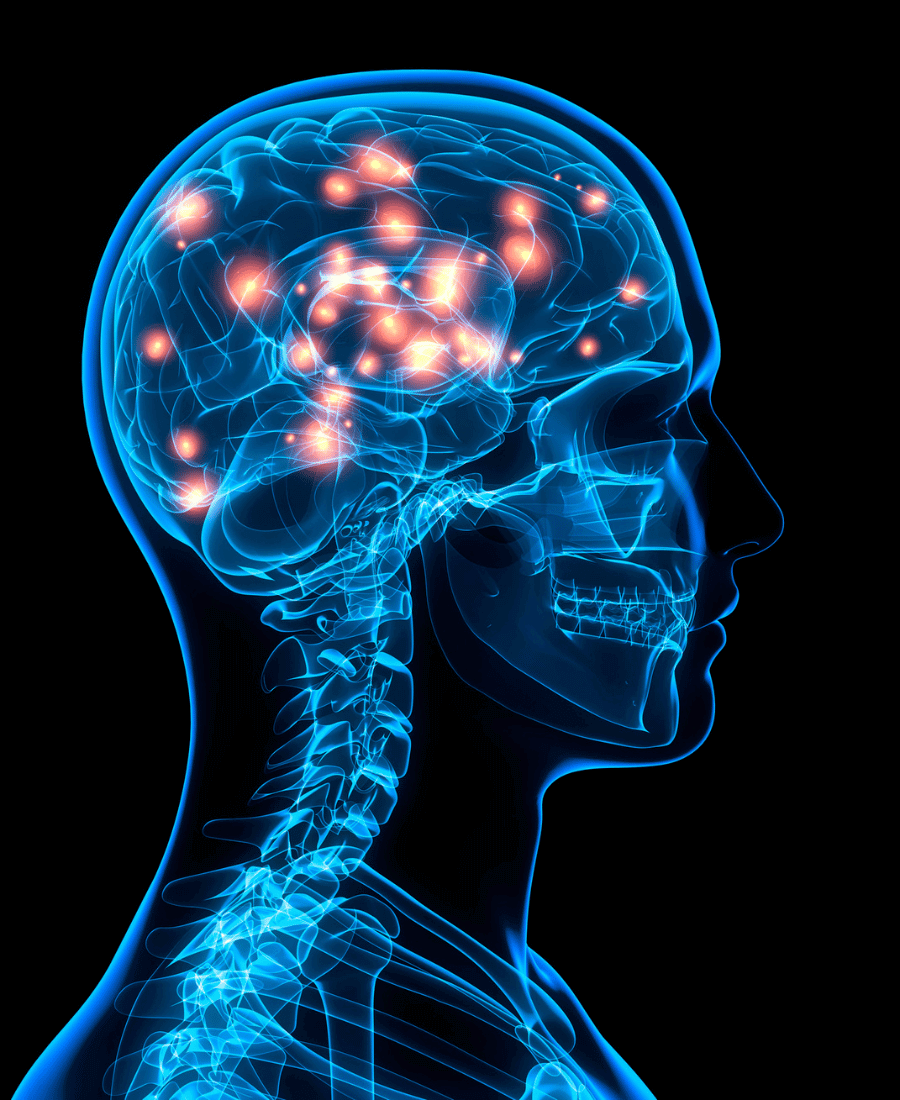Cannabis use has long-term effects on the brain that are being intensively studied. Young people are especially affected when they use cannabis regularly. Cognitive functions such as memory and learning ability can be impaired. However, there is also research showing positive effects in older adults. This page provides an in-depth look at the latest research findings on the long-term effects of cannabis on brain function.
Cannabis effects on the brain
Cannabis affects the brain in a variety of ways through its active components THC and CBD. These substances interact with the body's own cannabinoid system, which regulates important functions such as mood, pain perception, and appetite.
THC effects on the brain
THC is responsible for the well-known psychoactive effects of cannabis by binding to specific receptors in the brain. This can temporarily lead to feelings of euphoria and relaxation, but may also impair cognitive performance and short-term memory, especially with long-term use.
CBD and its effects on neurological processes
CBD does not have psychoactive properties, but it does influence the brain through its interaction with various receptors. It is being studied for its potential to treat neurological symptoms such as anxiety, epilepsy, and possibly neurodegenerative conditions. CBD may also have neuroprotective properties that help protect the brain from damage and inflammation.


Cannabis side effects on the brain
Cannabis can have a variety of side effects on the brain, especially with long-term or intensive use.
Personality changes due to cannabis use
Using cannabis can lead to changes in personality and behavior. Long-term cannabis use is associated with impaired emotional regulation and altered adaptability. This can be particularly likely to cause increased risk of depression or social withdrawal in adolescents.
Long-term effects on cognitive performance
Cannabis can impair cognitive performance in the long term. Observed effects include difficulties learning new information, reduced attention span, and problems with working memory. These effects can negatively impact academic and professional performance, especially if use begins at a young age.
Cannabis effects on the brain
The effects of cannabis on the brain are diverse and can have long-term consequences. Adolescents are particularly affected, as regular use can have a lasting impact on their brain development. These consequences range from cognitive impairments to structural changes in the brain. The question of regeneration after stopping use is an important area of research that offers hope for recovery, although many effects are still not fully understood.
Cannabis and Adolescents: Long-Term Effects on the Brain
The use of cannabis can have long-term effects on adolescents, as their brains are still in a critical phase of development. The consequences include cognitive limitations and possibly permanent changes in brain structure.
Cannabis-Related Brain Damage and Its Regeneration
Long-term cannabis use can lead to structural and functional damage to the brain. Research is being conducted on the regeneration of the brain after stopping cannabis use. These studies suggest that recovery is possible, especially if use began in adulthood.
How does Cannabis affect the brain
Cannabis interacts in complex ways with the brain's endocannabinoid system, an essential component of neurological health that regulates processes such as mood, memory, appetite, and pain perception. The main components of cannabis, THC (tetrahydrocannabinol) and CBD (cannabidiol), bind to cannabinoid receptors, which has far-reaching effects on brain function.
Cannabis Receptors in the Brain
THC and CBD primarily interact with CB1 and CB2 receptors in the brain. CB1 receptors are predominantly present in the central nervous system and directly influence neurotransmitter activity, which explains the psychoactive effects of THC such as euphoria and relaxation. CB2 receptors, although less common in the brain, play an important role in modulating pain and inflammation.

Cannabis influence on brain activity
By activating these receptors, cannabis can modify the release and function of neurotransmitters, thereby influencing brain activity. This results in a wide range of effects, from altered sensory perceptions to changes in cognitive function and emotional responses. Long-term effects may include adaptations in neural circuits, which can lead to lasting changes in learning, memory, and behavior for some users. This dynamic influence on brain chemistry makes cannabis a subject of research for both potential medical applications and risk assessment regarding long-term use.


